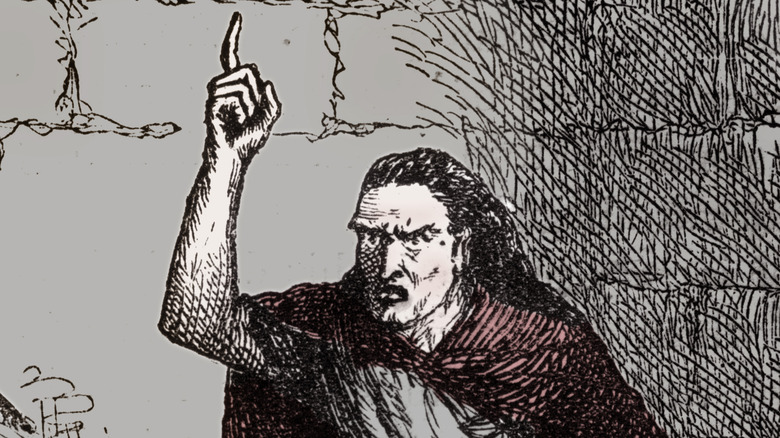The Youngest Person Accused In The Salem Witch Trials Might Surprise You
The Salem witch trials hysteria began in 1692 when four young women in Salem, Massachusetts, accused a number of other Salem residents of witchcraft. The young girls also said they had been possessed by the devil, and the ensuing alarm led to the hanging of 19 women and the subsequent imprisonment of not just women, but also men and children, according to History. The first person put to death for being a witch in Salem was Bridget Bishop, sentenced to hang on what's now called Gallows Hill, near Salem.
The trials by which these verdicts were reached was far from fair and balanced, products of one of the most infamous witch hunts in history. The senseless witch-mania spread beyond Salem to Gloucester, Andover, and Boston, according to Britannica. Among all the poor souls who lost their lives in this unfortunate period in history, it's the story of the youngest person accused in the Salem witch hunt that just might surprise you the most.
She was only 4 years old
According to Academic, the youngest person accused in the Salem witch trials was Dorcas "Dorothy" Good. Dorcas Good's name was correctly spelled on her arrest warrant, which was, in fact, her given name, even though it was occasionally written as Dorothy on historical documents from that time, leading to some confusion. Dorcas Good was only about 4 years old at the time, and both of her parents had already been accused of witchcraft themselves. After interrogation from the local magistrates, the poor child fingered her mother for witchcraft and confessed to being a witch herself, leading to her arrest. Dorothy's mother, Sarah, was the first person accused in the trials, according to New World News.
What's also surprising about the youngest person ever accused in the Salem witch trials is that she escaped execution. She was imprisoned without trial. She spent nine months in custody, a trauma that would lead the child to suffer from poor mental health for the remainder of her life. It's all a chilling reminder to be thankful that neither testimony nor a confession from a child at that age would be admissible in a court of law today.

